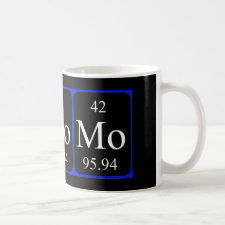
Authors: Kanekiyo Y, Inoue K, Ono Y, Sano M, Shinkai S, Reinhoudt DN
Article Title: "Molecular-imprinting" of AMP utilising the polyion complex formation process as detected by a QCM system.
Publication date: 1999
Journal: Journal of the Chemical Society-Perkin Transactions 2
Issue: (12)
Page numbers: 2719-2722.
DOI: 10.1039/a905965b
Abstract: The formation of a polyion complex was applied for molecular imprinting of AMP on a QCM resonator surface. The gold electrode on the resonator surface was modified with anionic thiols. Subsequently, layers of polycations and boronic acid-containing polyanions were adsorbed onto the QCM anionic surface utilising an alternating adsorption process. When the polymer adsorption was conducted in the presence of AMP, the anionic charges of the phosphate group introduced into polyanion by a boronate-cis-diol interaction altered the film growth behaviour: viz., excess polycationic units were adsorbed onto the polyanionic surface. After removal of the AMP from the surface polyion complex, a swollen gel layer with excess cationic charge is created. It was proven that this QCM system sensitively responds to AMP. The responsiveness is derived from the mass decrease in relation to the shrinking of the surface gel layer



Join the Society for Molecular Imprinting

New items RSS feed
Sign-up for e-mail updates:
Choose between receiving an occasional newsletter or more frequent e-mail alerts.
Click here to go to the sign-up page.
Is your name elemental or peptidic? Enter your name and find out by clicking either of the buttons below!
Other products you may like:
 MIPdatabase
MIPdatabase









